by Idriss Jebari
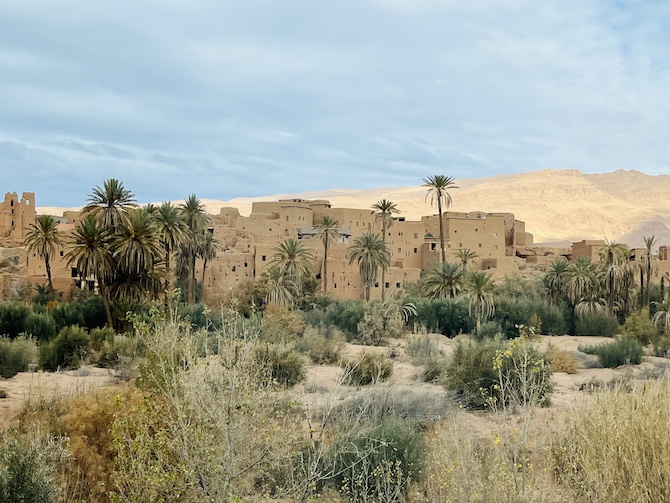
Can there be a future while one’s past still belongs to others? That is the question pondered by the young Moroccan historian Abdallah Laroui in the seventies. Two decades after the country’s independence from France, the progressive Moroccan intelligentsia lamented how the country adopted ‘traditionalising’ policies in society and culture, rather than embrace the possibilities of progress and modernisation. They dreamed of modern dams, glass towers, asphalt roads and offices with women and men, as the true sign of modernity. Yet, the authorities empowered rural notables, promoted Arabisation of education and a strong religious discourse, and deployed authoritarian methods over democracy, threatening to squander the promise of independence.
By contrast, Laroui believed that Moroccans first had to resolve their rapport with the past to achieve their preferred future. In 1970, he wrote L’Histoire du Maghreb (1970), a self-titled ‘interpretative essay’, as it was labelled by his translator Ralph Mannheim in 1977. The book was the written-up lecture notes which Laroui delivered at the University of California in Los Angeles from 1967 to 1970, which he released with the radical and Third-Worldist publisher François Maspéro in Paris, but it had a strong political message. Most of the book consists of refuting the theses of French colonial historians over the supposed ‘historical delay’ of the Arabs, of Islam, and their civilization. These theses had provided the justification for colonial expansion and settlement into Algeria (1830), Tunisia (1881), and Morocco (1912). He also took aim against nationalist historians of the region who produced similarly ideological histories as their colonial counterparts, including the Algerian Mohamed Cherif Sahli’s Décolonisation de l’histoire(1965).
Instead, Laroui embraced the revolutionary possibilities of history. He believed that Moroccans, and Arabs, could recover their ability to envisage and imagine their future by resolving some long-standing issues in the past. It was encapsulated in a telling series of metaphors found in the book’s introduction: the imperative for Moroccans was to ‘get out of oneself, of one’s mountains and dunes’ in order to ‘define the self and not in relation to the other’ and ultimately, ‘to stop being an exile in spirit’ (p.5). These three metaphors contrasted with the more tangible ideology of progress found across the region, yet they offer a fascinating way to think about the link between the decolonisation of the past and access to future-making.
For starters, Laroui argued that each foreign invasion of the region drove its inhabitants to withdrawn in ‘mountains and dunes’, meaning simultaneously the peripheral zones of the country and in their cultural traditions, andshutting themselves from history and the outside world. He revisited North Africa’s history under successive civilizations stretching back to the Roman era until the French to argue that each invasion set back the region’s technological progress and the signs of its developments. Then, Laroui noted how Moroccans still saw themselves through foreign eyes, namely those of the French orientalist gaze, despite being politically independent. French colonial authorities and its orientalist scholars had managed to ‘freeze’ North African societies and sense of self in time, which Laroui called a ‘great crime’ because it ‘preserved structures that were felt to be obsolete’ and thus forcing the colonised to stop their historical evolution and even to ‘regress’, confirming that ‘every colonisation is a condemnation to historical death’. Instead, it was imperative to reclaim the power of self-definition, no longer be haunted by a sense of inferiority toward the West. And overcome essentialising conceptions of the ‘authentic’ Moroccan self. Finally, Laroui called on his peers ‘to stop being an exile in spirit’, where exile is a dislocation from time rather than place. It meant that his peers had to return to the Moroccan present from the space of disillusionment where the progressive thinkers of his generation took refuge. It was a call to return to history in the present and regain their optimism. His text would be a rallying call rather than a defeat.
This led him to the final prescription: the ‘Revolution, that remains to be fought’ which consisted of ‘coming down from mountains and dunes’ to open the perspective of a new future. Laroui saw a great hope in the region’s youth, which he refers to regularly in his essay’s introduction and closing. On the one hand, youth are obsessed with the present and ‘fall asleep if the subject of conversation is the medieval Maghrib’, failing to see how ‘the picture of their past may not in the long run shape their present’ (p.5). On the other hand, youth can overcome their predecessors’ failings by succeeding in creating the conditions for a true, ‘reconciled’ national community to take shape (p.388). This approach ensured that Laroui would speak more humbly about youth than his peers. His role, as a historian of the future, was merely to create the conditions for the passing of responsibility to recover the possibilities of Morocco’s future. It stood in contrast with other voices on the left in Morocco, who failed to entrust youth to build their own future – here we may point to Mohamed Lahbabi’s Les Années 80 de Notre Jeunesse (Our Youth in the Eighties) (1970) and the opening note by socialist party chairman Abderrahim Bouabid, who want declare faith in youth, but on their terms and burdened by their political goals (and failures).
In closing, it may appear unusual for a Marxist intellectual committed to Arab future and modernity to engage with the past, tradition, and historical thinking so thoroughly. However, Laroui put his finger on the way colonialism makes the colonised people unable to imagine a future outside of the way France thought it for them, especially in the Maghreb, as explored recently by Abdelmajid Hannoum. History can be a prison but also a means to recover an optimistic future. His essay was a daring intellectual act that deserves to be reappraised. It plunges back to a time when books were as powerful as a zaïm (political leader)’s political speech or the decision to nationalise a canal. It often demonstrates that to imagine the future, one often needs to invite historians around the table. And the youth.
This piece is part of a series on the idea of the future as it relates to Arab media and cultures, based on contributions from panellists in an LSE research symposium in May 2022. Read the introduction here, and see other pieces below. For more on the LSE Academic Collaboration project with the American University of Sharjah, ‘Arab News Futures’, see here.
In this series:
- ‘The Future in Arab Media and Cultures‘ by Omar Al-Ghazzi & Abeer Al-Najjar
- ‘The Soviet Union as ‘Future’: the Socialist Imaginary of Arab Intellectuals during the Mandate Period‘ by Sana Tannoury-Karam
- ‘Visiting Lebanon’s Future in its Past‘ by Ghenwa Hayek
- ‘Historians and the Future: Abdallah Laroui’s Prescriptions for a Recovered Moroccan Modernity‘ by Idriss Jebari
[To read more on this and everything Middle East, the LSE Middle East Centre Library is now open for browsing and borrowing for LSE students and staff. For more information, please visit the MEC Library page.]



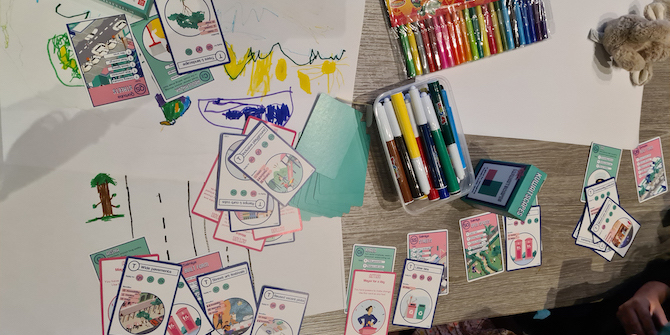
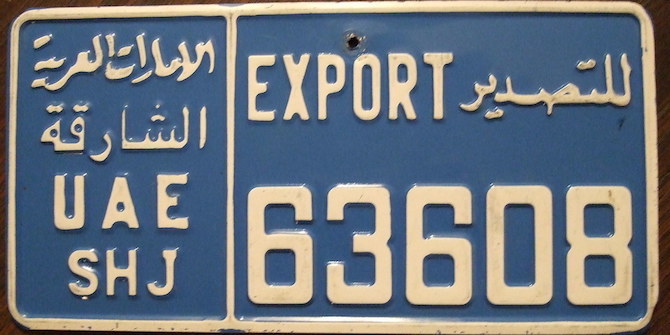
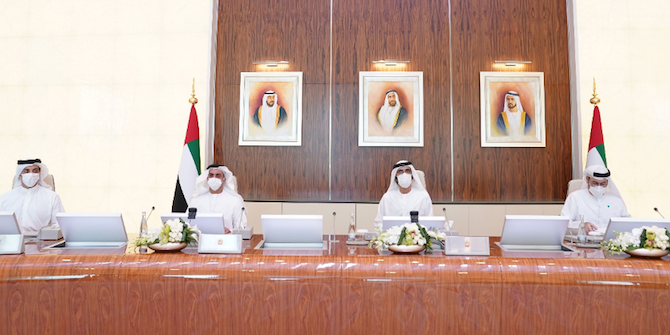
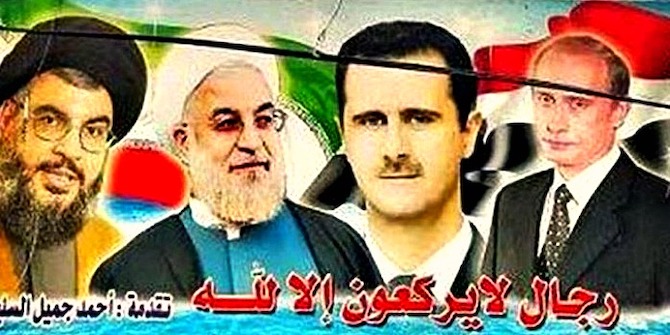
All well and good, but Laroui did evolve from a commited Marxist into a Makhzen intellectual, serving Hassan II in many capacitites. Today’s Laroui is not the same as the one who wrote The History. Stuart Schaar, Professor Emeritus Brooklyn College City University of new York.